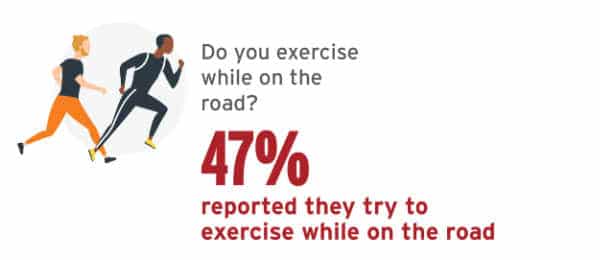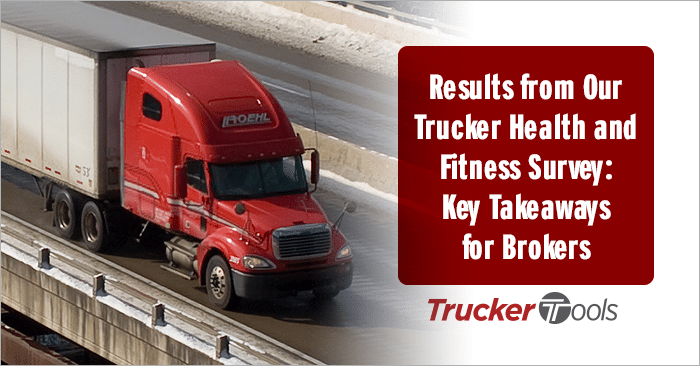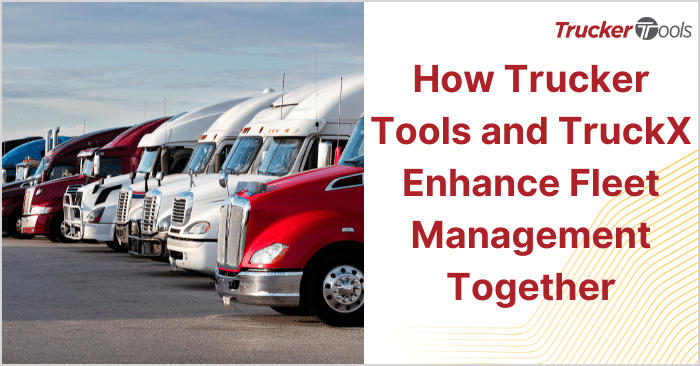The life expectancy of truckers is 16 years less than it is for people working in other professions. Long-haul truck drivers also are at a higher risk of becoming obese compared with adults in other occupations in the United States. The longer that truckers stay in the industry, the higher their risk is for developing high blood pressure, high triglycerides, type 2 diabetes, osteoarthritis, sleep apnea and several other serious health conditions, as well.
With these statistics in mind, Trucker Tools recently surveyed truckers to find out what their top health and fitness concerns are and about their strategies for staying healthy on the road. Nearly 200 truckers responded to our survey health and fitness survey, sharing their tips, challenges and comments about trying to maintain a healthy lifestyle, despite the long hours they spend behind the wheel. For more on the results of our survey, check out our top takeaways for brokers and 3PLs.
Truckers Want To Eat Better, Exercise More
Of the nearly 200 truckers who responded to our health and fitness survey, 56 percent indicated they want to lose weight, while a whopping 76 percent reported that they would like to eat healthier and/or be more active. These results show that truckers certainly have the desire to exercise and eat healthy diets, despite the time challenges they face as truck drivers. In fact, 91 percent of the drivers who answered the survey said that maintaining a healthy lifestyle on the road is important to them.

The Coronavirus Has Made Eating Healthy,
Exercising More Difficult
Many of the shutdowns that have occurred because of COVID-19 have made it more difficult for truckers to find healthy food options on the road and to find a way to exercise. As one of the truckers told us in the comments section of the survey, “I’m praying for all of the states to get a grip on the pandemic so that we have places to eat.” Another trucker told us, “We need to have healthier food options. All of the truck stops are fast food now.” Exercising also is a challenge for truckers since many gyms are operating with limited capacity and most truckers want to avoid locations where potential exposure to the virus is possible.
Truckers Need Help Leading Healthier Lifestyles
In the health and fitness survey, we also asked truckers what they need the most help with regarding their health and fitness levels. Fifty-one percent responded that they need help with exercise and moving more, while 31 percent said they could use help reducing their stress levels. One trucker wrote, “I need help finding the time to exercise and sleep,” while another commented, “I’m trying to find a way to exercise while I’m on the road, but I need guidance.” The will to lead a healthier lifestyle is there, but many truckers feel like they don’t how to do so. Approximately 47 percent of those we surveyed reported that they try to exercise on the road, while 46 percent said exercising while on the road isn’t even an option for them.

Trucker Wellness Programs: Everybody Wins
Instituting programs that reduce stress and that give carriers the tools they need to live healthier lives not only helps carriers, but it also can help you as a broker or 3PL. When you incentivize healthy eating and regular exercise with driver wellness programs, you’re signaling to truckers that you value their work and their health. Providing health and fitness tools to carriers also helps drivers stay healthy, reduces injuries and stress, and keeps them behind the wheel moving your loads.
Driver wellness programs can include rewards for losing weight, quitting smoking, increasing exercise and eating a healthier diet. You may want to provide app-based or online health coaching resources to drivers. You also may consider working with a fitness pro to create trucker-specific health and fitness programs that are tailor-made for the trucking lifestyle.
Read Choose a Single, Unified Carrier Platform Over Faster Horses to find out how you can increase carrier retention even amidst a capacity crunch.
Schedule a free demo of Trucker Tools’ digital freight matching, real-time freight tracking and Book It Now®.






